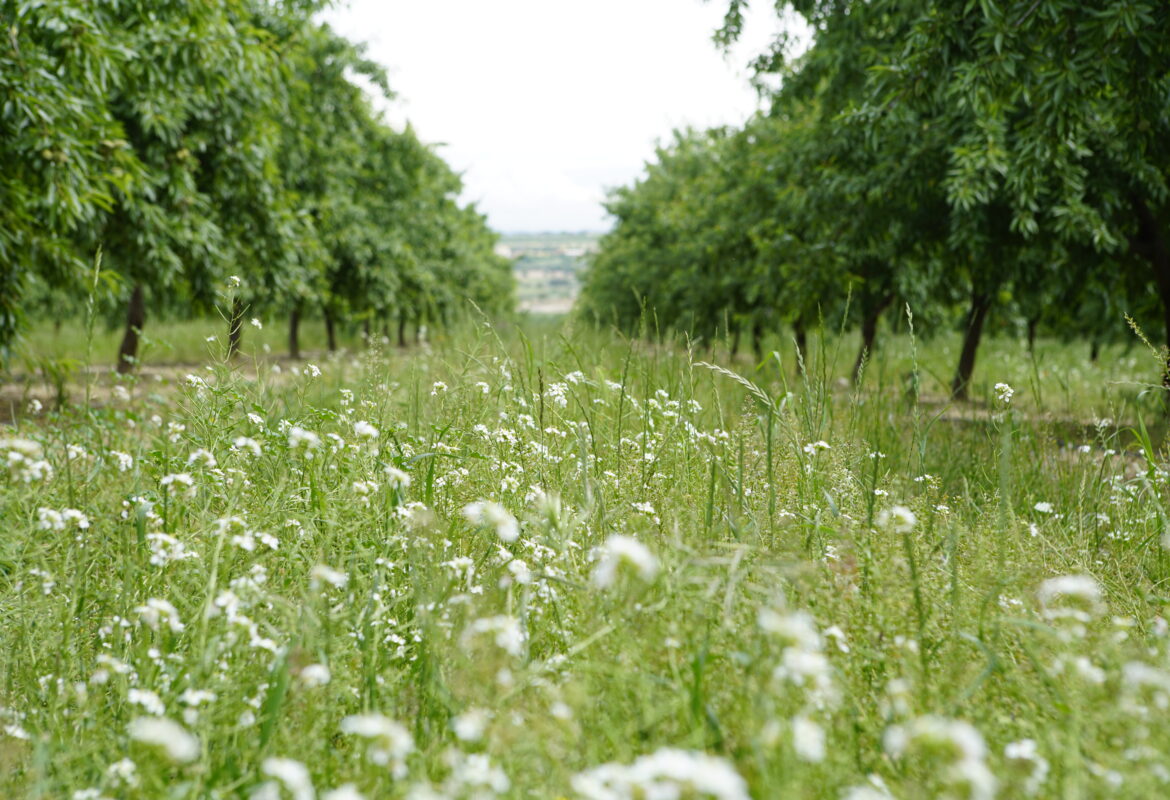
News

Borges reinforces his commitment to biodiversity in the agricultural environment
- Borges joins the Observatorio de la Biodiversidad Agraria, the project presented by the Fundación Global Nature with the aim of providing tools to improve biodiversity in the agricultural environment.
This project is added to other actions that the company carries out such as the 1,380 thousand m2 dedicated to environmental measures in its agricultural project or the Action Plan for Biodiversity.
On the occasion of Biodiversity Day, celebrated last May 22, the Observatorio de la Biodiversidad Agraria (OBA) has been presented, a project of the Global Nature Foundation (FGN) that has the support and funding of the Ministerio para the Ecological Transition and the Demographic Challenge through the Biodiversity Foundation.
Borges International Group is the first agri-food company that has joined the OBA, an open project based on participatory science, which seeks to better understand the state of biodiversity in the agricultural environment in Spain and monitor how some practices in the ‘agriculture help to preserve it. The methodologies implemented (direct observation, counts, nests and traps, etc.) are simple and affordable standards, suitable for a non-specialist public. For this reason, the project aims to directly involve and sensitize farmers who are the main ones involved in monitoring on the farm itself, in the field.
The project starts with 21 pilot farms, among which Borges International Group collaborates with the farm Mas de Colom (Tàrrega). Its aim is also to demonstrate how biodiversity, apart from being necessary and a guarantee of the future for agriculture and food security, can also be simple to apply and control at the same time. All this will also contribute to guaranteeing a supply of raw materials in a sustainable way and transfer it to the value chain.
Biodiversity Action Plan
In this same estate, the company is also implementing the Biodiversity Action Plan drawn up together with the Global Nature Foundation through which it is intended to preserve and increase biodiversity through practices that contribute to carbon sequestration, reducing erosion and mitigating climate change.
Among many other initiatives that will be developed, is the implementation of plant covers that control the loss of fertile soil and the control of pests in a natural way, as well as the planting of more than 3,000 linear meters of trees and shrubs where the fauna and ‘ecosystem they can find food there and, in addition, they help to sequester carbon from the atmosphere.
Joining the Agricultural Biodiversity Observatory project will also serve as a tool to complement and monitor all the actions implemented in this Plan, obtaining direct and comparative data to account for the positive impact of the activity and its evolution in the weather.
Measures aimed at preserving the environment
Additionally, the company dedicates a total of 1,380,000 m2 to the conservation of the environment and biodiversity in the rest of its farms through reforestation projects, fallow land, conservation of ZEPA areas, devesa and pastures in different farms in Granada, Lleida and Portugal. In these, for example, reforestation practices are carried out, as is the case of El Carquí (Granada) with 776,000 m2 or fallow areas in Lleida that help the conservation of agricultural birds, the group of birds most threatened in the European sphere.
Also worth noting are the 198,000 m2 of devesa in Machados (Portugal) and 76,500 m2 of oak grove in Palheta (Portugal) that will be allocated to compensatory measures for environmental purposes. It is a unique ecosystem typical of the Iberian Peninsula that integrates oaks, corks and pasture. The devesa regulates water cycles and soil fertility, enhances biodiversity and, in addition, plays a fundamental role in mitigating climate change due to the fixation of carbon dioxide. Between 30,000 and 40,000 kilos of CO2 equivalent are fixed in just one hectare of their pasture.
